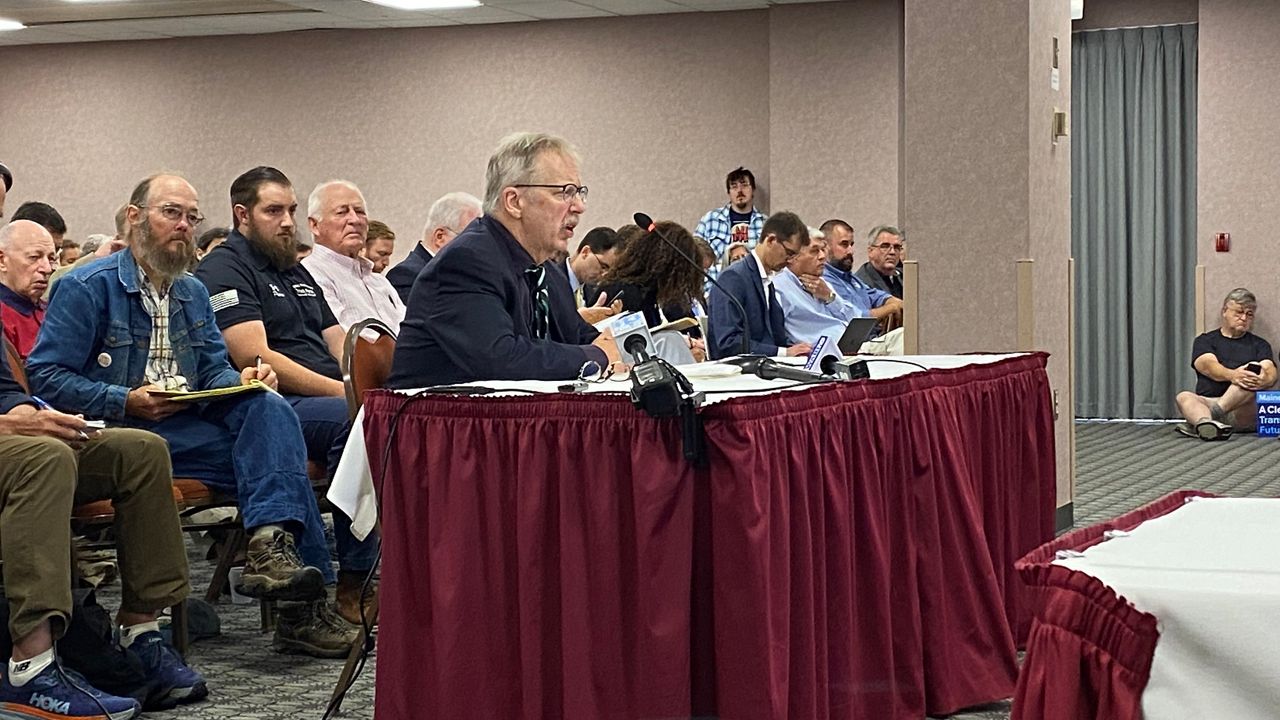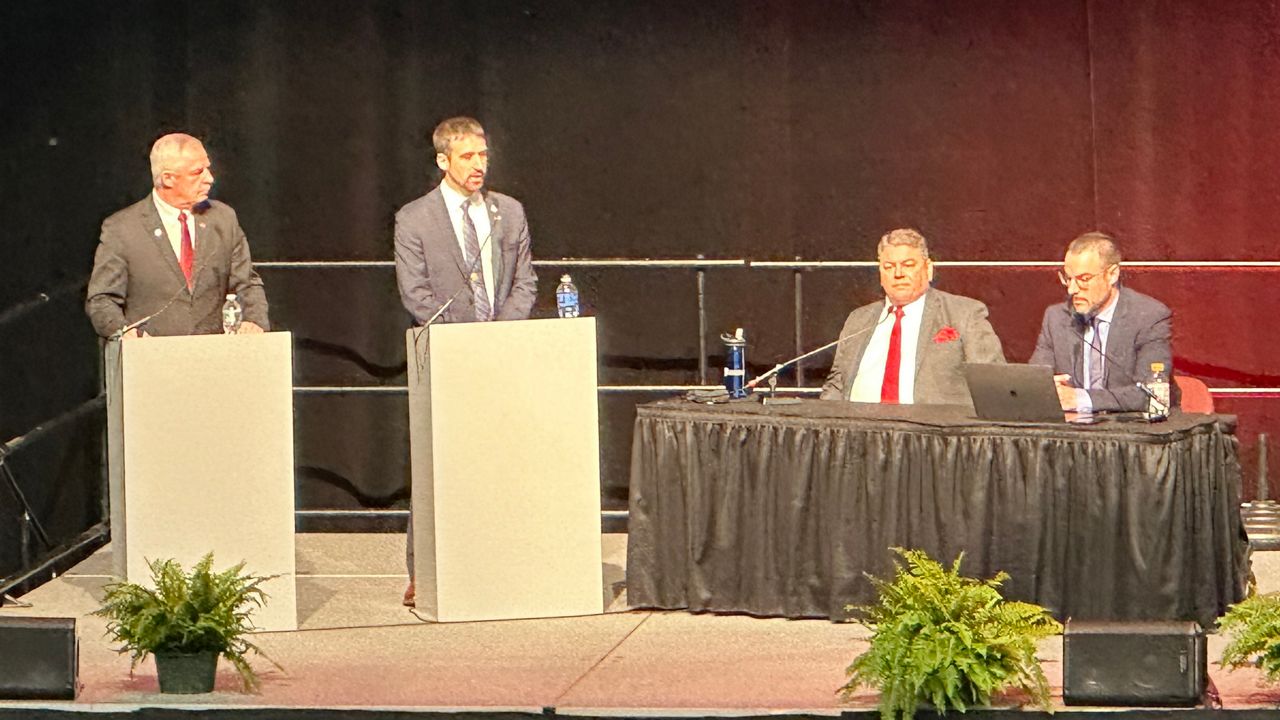A proposal designed to help Maine reach its climate goals would require 43% of new vehicles sold in Maine to be zero emission by the 2027 model year, increasing to 82% by 2032.
A proposal designed to help Maine reach its climate goals would require 43% of new vehicles sold in Maine to be zero emission by the 2027 model year, increasing to 82% by 2032.
Nearly 90 people signed up to testify Thursday on the proposal put forward by the Natural Resources Council of Maine, which used a little-known provision in state law to bring forward the idea with signatures from more than 150 Mainers.
NRCM presented the rule to the Maine Board of Environmental Protection Thursday, saying it’s necessary to help Maine meet its climate goals.
Those goals include reducing greenhouse gas emissions by 45% by 2030 and 80% by 2050, said Jack Shapiro of NRCM.
“Severe storms, flooding and extreme heat have all arrived in Maine,” he said. “Most of the state avoided choking wildfire smoke just a few weeks ago because of a fortunately placed low pressure system.”
Transportation represents about half of the state’s greenhouse gas emissions, he said.
But opponents — including the Maine Republican Party, which submitted more than 1,000 signatures in opposition — say the standards are too stringent, will stress the state’s electricity grid and force consumers to buy expensive vehicles.
“People are fleeing California because of ridiculous ideas like this,” said Rep. Joshua Morris (R-Turner). “Hard working Mainers deserve better than this policy.”
Jeff Crawford, director of the Bureau of Air Quality at the Maine Department of Environmental Protection, said that the citizen petition submitted by NRCM calls for Maine to adopt California-like standards.
The rules cover passenger cars, light-duty trucks and medium-duty vehicles.
The rules would apply only to new vehicles sold, not used vehicles, Crawford said. The rule is intended to force manufacturers to meet a requirement to provide increasing numbers of zero emission vehicles by certain deadlines.
Supporters say if Maine doesn’t adopt the rules, other states will get the vehicles first, putting the state ever farther behind in reaching its climate goals.
Massachusetts, Vermont, New York and other states have already adopted the rules, according to NRCM.
“The most important thing the state can do in order to make sure the vehicles actually get here is by adopting the rule,” said Emily Green of the Conservation Law Foundation. “We can essentially be assured by not adopting the rule, the vehicles will not come to the state. Manufacturers are going to comply with the mandates elsewhere where markets are bigger.”
Rep. Dick Campbell (R-Orrington) criticized the proposal, saying the decline in gas taxes collected because fewer people will be driving gas-powered vehicles will hurt the state’s ability to repair roads and bridges.
“Local service garages will not be able to service EV’s without exorbitant investments, forcing them out of business and owners to get service only from dealers,” he said.
Matt Cannon of the Sierra Club emphasized that the are standards for new vehicles and would not impact existing cars on the road. He implored the board to move forward with the rules.
“I trust in you all to listen to the needs of our communities and our environment and not special interests invested in keeping us hooked on polluting vehicles,” he said.
On the other side, Nathan Gould of Winterport said the rules are major changes that should be considered by the full Legislature, not a citizen board.
“It cannot be stated enough times today,” he said. “Maine is not California. Take into our account our climate, harsh winters, our higher-than-average electricity rates, our older, lower income population.”
The board will accept written comments on the proposal until Aug. 28.








)